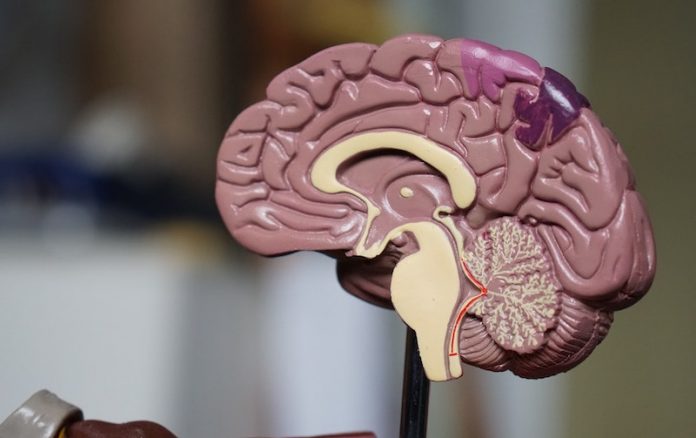
Scientists from Northwestern Medicine found that there are five different diseases that attack the language areas in the left hemisphere of the brain that slowly cause progressive impairments of language known as primary progressive aphasia (PPA).
In some cases, the disease hits the area responsible for grammar, in others the area responsible for word comprehension. Each disease progresses at a different rate and has different implications for intervention.
The research is published in Brain and was conducted by Dr. M. Marsel Mesulam et al.
In the study, the team examined 118 PPA autopsies. The patients had been followed for more than 25 years.
The initial symptoms of PPA can be subtle and sometimes attributed to anxiety or throat problems. Even specialists may fail to make a diagnosis in a timely manner.
In 40% of cases of PPA, the underlying disease is a very unusual form of Alzheimer’s disease.
It’s unusual because it impairs language rather than memory, and because it can start much earlier when the person is under 65 years old.
In 60% of cases, the diseases causing PPA belong to an entirely different group of conditions called frontotemporal lobar degeneration (FTLD).
Although most people have not heard of this, frontotemporal lobar degeneration conditions are responsible for about 50% of all dementias that start before the age of 65.
Accurate diagnosis can now be achieved with new imaging and biochemical methods.
Once the underlying disease is diagnosed, there are many different approaches at a disease level (medication) and symptomatic level.
The team says if Alzheimer’s disease is the cause, a patient can be treated with medication and channeled into clinical trials.
At the symptom level, an individual who has difficulty with grammar and word finding can receive targeted speech therapy.
People with word comprehension would receive a different type of speech therapy or, perhaps, transcranial magnetic stimulation, which seems to work best for this particular deficit.
Anxiety around word finding can be treated with anti-anxiety medication and behavioral therapy.
The next step in the research is to improve diagnostic accuracy through new biomarkers in order to identify if a patient’s PPA is caused by Alzheimer’s disease or FTLD.
The researchers also want to find pharmacologic treatments suitable to each disease underlying PPA and individualize interventions. Another goal is to design symptomatic non-pharmacologic interventions based on the nature of the language impairment.
Sign up for our newsletter for more information about this topic.
If you care about brain health, please read studies about common food oil in the U.S. that could change genes in the brain, and common habits that could make your brain age fast.
For more information about brain health, please see recent studies about how does COVID affect the brain, and results showing how to eat your way to a healthy brain.
Copyright © 2022 Knowridge Science Report. All rights reserved.



